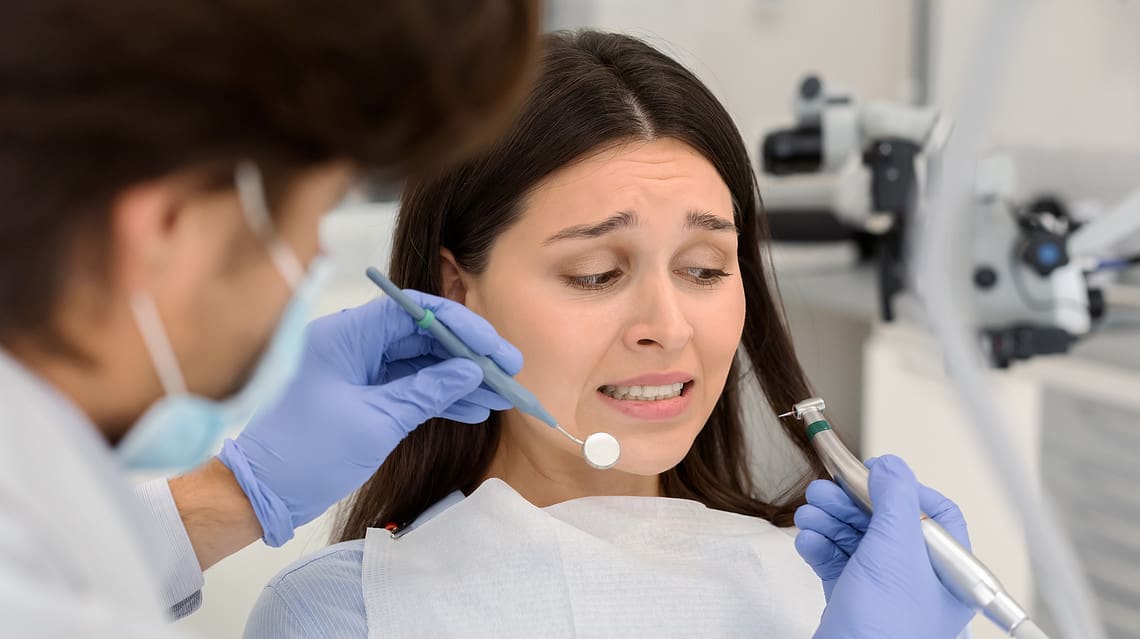Various tools for tooth extraction can be performed by either a dentist or an oral surgeon. If you are experiencing pain and think you need a tooth pulled, it’s best to visit your dentist to see if the tooth can be saved. They will perform the extraction using the appropriate tool if it cannot be saved. Depending on the situation, they may use a scalpel, forceps, dental extractor or suction device.
What are the different tools used for tooth extraction, and what do they do?
Several tools are utilised during tooth extraction, allowing the dentist to remove teeth from the mouth safely. Dental professionals use forceps to grip the roots of a tooth to leverage it out. Elevators aid in loosening the tooth before extraction and help the dentist separate the tissue connecting the tooth to the bone. An instrument called a chisel is sometimes used to break apart bone or even remove pieces of broken-off root. Other times an exploration probe is necessary to properly locate impacted teeth and help identify the precise location of any remaining roots. To finish this procedure, curettes are often employed to thoroughly clean any remaining debris and smooth out rough edges in sockets after extraction. Together, these instruments make it possible for a qualified dental professional to perform extractions quickly and safely with minimal disruption to the patient.
What is a dental extraction, and why would it be necessary?
A dental extraction is a procedure used to remove a tooth from its socket in the jaw. While dental fillings and restorations can help restore part of a damaged or decaying tooth, it is sometimes necessary to remove it altogether. Common reasons for extraction include severely affected teeth that are too far gone to be saved, over-crowding and orthodontic treatments, and impacted wisdom teeth. A professional dentist should always perform extractions since improperly removed teeth can cause additional risks. Following an extraction, it is imperative to practice good oral hygiene habits, such as maintaining proper brushing and flossing techniques to avoid complications like dry sockets and infection.
Are there any risks associated with tooth extractions, and how can I minimise them?
Tooth extractions are very common and can offer significant relief from dental issues. However, as with any medical procedure, associated risks must be considered beforehand. Complications such as pain, infection and nerve damage are all possible with tooth extractions. To minimise the chances of experiencing any of these risks, it is essential to use a trusted dentist experienced in this specific procedure. Additionally, communicate with your dentist about any underlying health issues; this will allow them to assess the risks for each patient individually and provide the best care around optimal safety. Lastly, following post-extraction instructions provided by your dentist will help ensure a successful recovery period with minimal unpleasant side effects.
Can I pull my teeth out if they’re causing me pain or discomfort – or should I see a dentist instead?
Pulling your teeth out is not recommended, as it can be dangerous without the right tools and expertise. In addition to the risk of injuring yourself, improper tooth extraction may introduce bacteria into the surrounding tissues, raising the possibility of an infection. This can lead to further pain and delayed healing. Therefore, it is best to visit a dentist for proper tooth extraction, as they are trained and qualified to provide painless and safe treatment. Not only do dentists have access to advanced tools and techniques to ensure efficient and precise removal of decayed or damaged teeth, but they also have access to medications that can make extraction far more comfortable by numbing the area beforehand.
Tooth extraction at Simply Dental Chatswood, Sydney NSW, Australia
The tools used for tooth extraction depend on the extraction performed. Some teeth can be pulled out with forceps, while others may require a surgical cut to remove them. It is best to consult a dentist before attempting to extract a tooth at home.
To facilitate, we also have experienced dentists in Willoughby.


